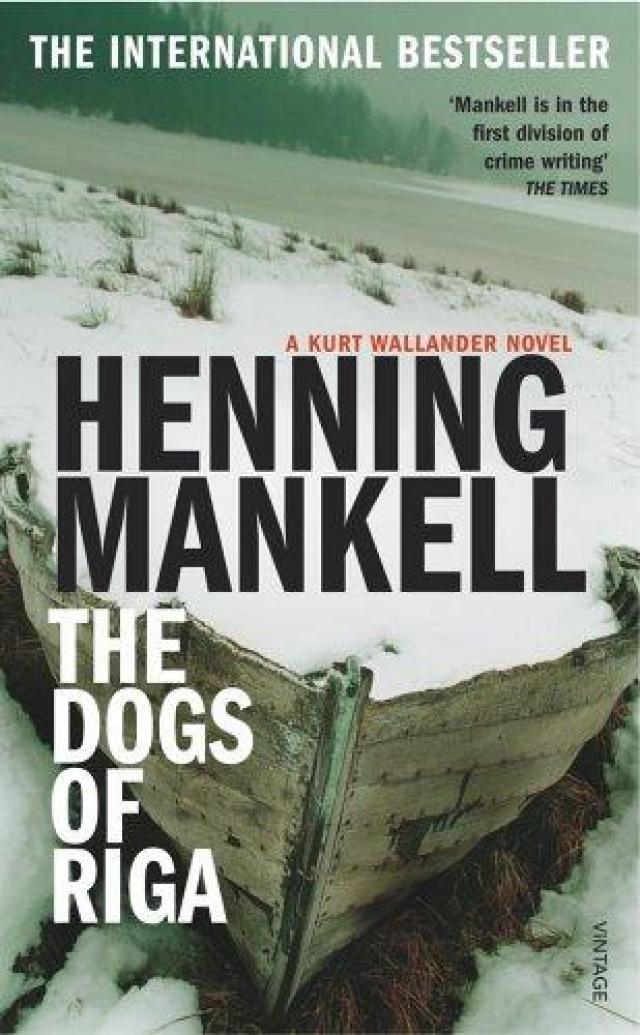If you enjoy this piece, please consider following/supporting me over at ko-fi where you can follow the endeavours of all sorts of creatives!
Disclaimer: should you make a purchase through any of the links in this blog, Monsta Reader may earn a commission from the sellers, but that has no impact on the cost to you as the consumer, nor does it influence the content of this blog.
The Dogs of Riga was first published, as Hundarna i Riga, in 1992, in Sweden, and is the second novel in Mankell's Kurt Wallander series. However, it took nine years before it was translated and published in Britain. And, the series has become extremely popular amongst crime fiction fans in both countries.
One of the reasons I feel an appreciation for crime fiction, one of the things I think sets it apart from other genres, is the fact that within the pages of a crime novel writers are able to deal with such a wide variety of themes. The life of a detective or an inspector is naturally going to bring them into contact with the very extremes of human suffering, wanting, and crises. Therefore, writers can tackle themes which might begin at the very fundamentals of what it is to be human (in life and in death), right through to weightier topics of an existential nature, politics, psychology, and so forth. And Mankell manages that here, as he explores themes of corruption, relationships, and politics, set in the Eastern Europe of a collapsing Soviet Union.
I fear I have come to Wallander a bit late in the game and, there's a chance, you probably know more of this series than I! So far, this is the only book in the series that I have read but, since finishing it, I can tell you I intend to read more.
With his drinking just a little too much and his love of music, Wallander reminds me a little of other brooding police inspectors of fiction - Morse and Rebus, anyone? Indeed, like those two characters, there are hints that the darkness involved in police work may be at odds with a more sensitive side (a love for opera, obvious desire for romantic love, and questioning his career choice). However, any writer of crime fiction could be forgiven for employing devices that show their protagonist to be human and not completely untouched by their work - work-related stress suffered by police officers in the real world is well documented. Besides, Wallander is also a distinct character in his own right; he has his own past, feelings, relationships, and beliefs.
As we follow the Inspector throughout the course of the novel, in fact, it is his character that informs many of the decisions he makes. For example, and without wishing to give too much away for those that might not have read it yet, it is Wallander's humanity, sense of right and wrong, and desire for romantic love that inform his choice to return to a country that seems to be full of corruption and a potential for fatal danger at every turn. Even though he has many instincts telling him to leave, even when his role as a police inspector is officially done, he is very much at the heart of this story.
This is a crime novel. But this is also a novel of suspense, and we follow Wallander into a world of paranoia. However, as we travel with this detective, I can't imagine much better company. And, when I compare Wallander with other fictional detectives - such as Morse and Rebus - it is only because he deserves to be amongst these other greats of crime fiction. If you like crime novels, I recommend this one, and I am off to get myself some more Wallander novels too.
You can purchase your own copy of The Dogs of Riga by Henning Mankell here, from bookshop.org, who support independent bookshops.
Again, be sure to check out my ko-fi page, and I hope you come back soon! But, until then, stay safe, and read lots of good books!

No comments:
Post a Comment